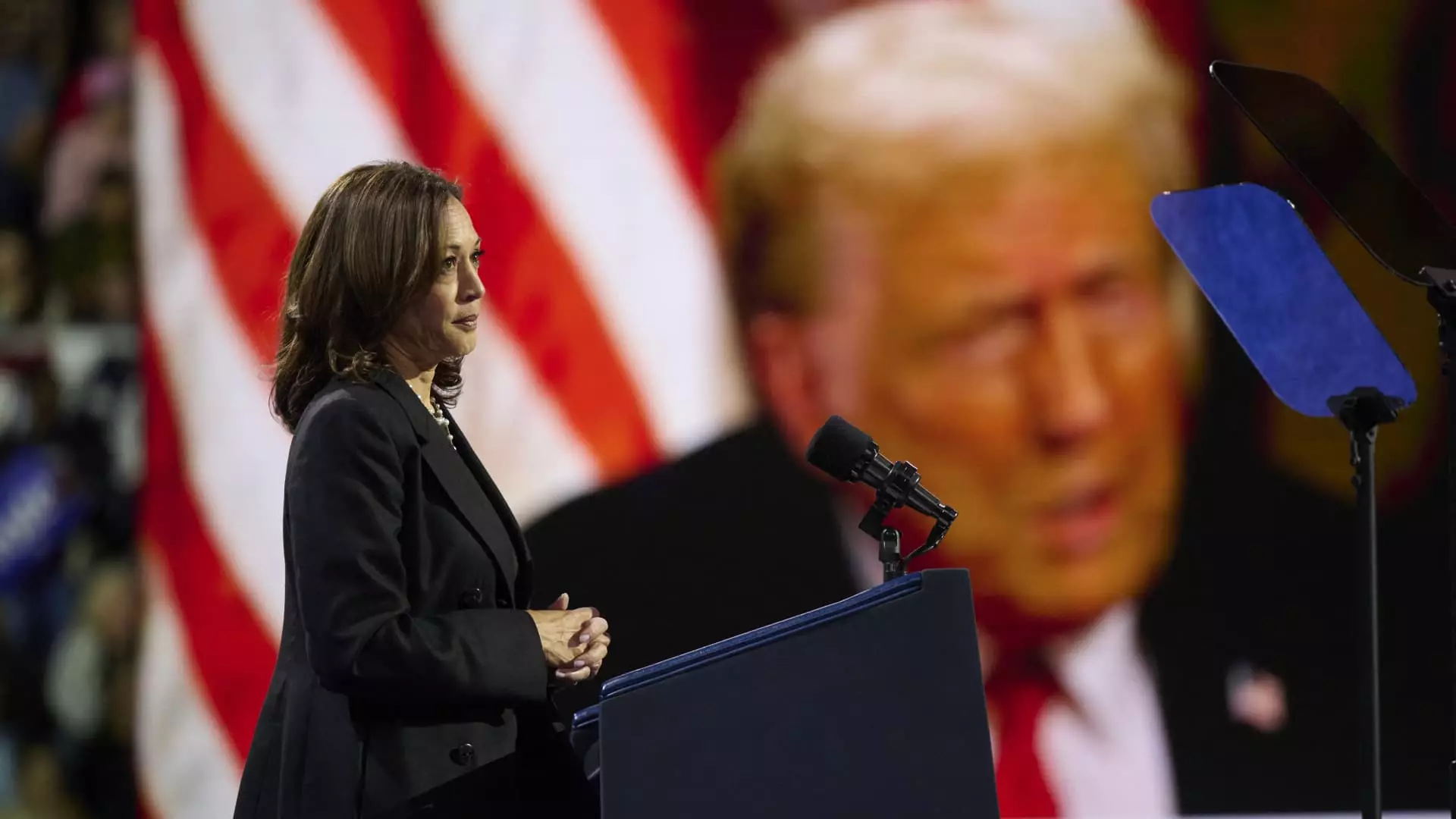Political betting has gained unprecedented traction in recent years, serving as a unique barometer for public sentiment and electoral outcomes. This gambling platform allows users to place bets on various political events, influencing perceptions of candidates’ viability. A recent surge in bets on former President Donald Trump on the platform Polymarket raises questions about the integrity of political gambling and its implications for the upcoming 2024 election.
This month, reports emerged detailing that four accounts on Polymarket had collectively placed over $28 million in bets on Trump as the Republican nominee for the 2024 presidential election. Polymarket, after conducting investigations, revealed that these accounts are controlled by a single sophisticated trader, a French national with a robust background in trading and finance. The funds for these bets originated from a prominent cryptocurrency exchange in the U.S., namely Kraken.
While the substantial financial activity has drawn scrutiny, Polymarket’s representatives firmly state that there is no evidence indicating that this trader is trying to manipulate Trump’s odds. Despite this assertion, the very existence of such a “whale” in the political betting space raises eyebrows and opens the floodgates for speculation.
What complicates matters further is the evolving perception of political betting markets. Many proponents, including influential figures like Elon Musk, have championed prediction markets as more accurate than traditional polling, arguing that real money on the line sets them apart. However, experts warn that such markets do not strictly reflect public sentiment in the same way polls do. Rather than represent voter intention, betting markets represent a calculated assessment of the likelihood of an outcome based on information available to the bettors.
Polymarket articulated this distinction well: it emphasized that prediction markets indicate probability rather than voter intention. This divergence is crucial to understanding how political betting operates and the potential misinformation surrounding it. The normalization of this understanding remains a challenge as misinformation can inflame public speculation and affect voter behavior.
The current election cycle has witnessed a remarkable proliferation of political betting platforms, demonstrating a tangible interest in wager-based electoral forecasting. Despite Polymarket’s suspension for U.S. traders following a settlement with the Commodity Futures Trading Commission (CFTC), competitors like Kalshi and Interactive Brokers are stepping into the fray with new contracts for the 2024 presidential election. This shift not only presents opportunities for bettors but also raises questions about regulatory scrutiny and market ethics.
The significance of these betting platforms during critical election phases cannot be understated. They provide an alternative perspective on political viability and may sway bettors’ opinions and those looking to gauge current political climates. However, as seen with the enormous sum placed on Trump through one trader’s accounts, there is the potential for a single individual’s choices to disproportionately affect market indicators.
As we navigate the 2024 election landscape, the intertwining of traditional polling and political betting raises crucial questions about the nature of predictions and public opinion. The case of the whale on Polymarket encapsulates both the allure and the peril of these prediction markets. While these platforms offer new ways to engage with politics, they also require careful scrutiny to avoid misinterpretation of their results.
Ultimately, understanding the motivations behind substantial bets, the mechanics of the platforms, and the potential for market manipulation will determine the credibility and efficacy of political betting in the American democratic process. As the political tide shifts and individuals place their bets, the significance of these markets will only grow, prompting an essential reevaluation of how we conceptualize and interpret electoral trends. The world of political betting is complex and multifaceted, representing both an innovative frontier and a cautionary tale in our understanding of electoral systems.


Leave a Reply